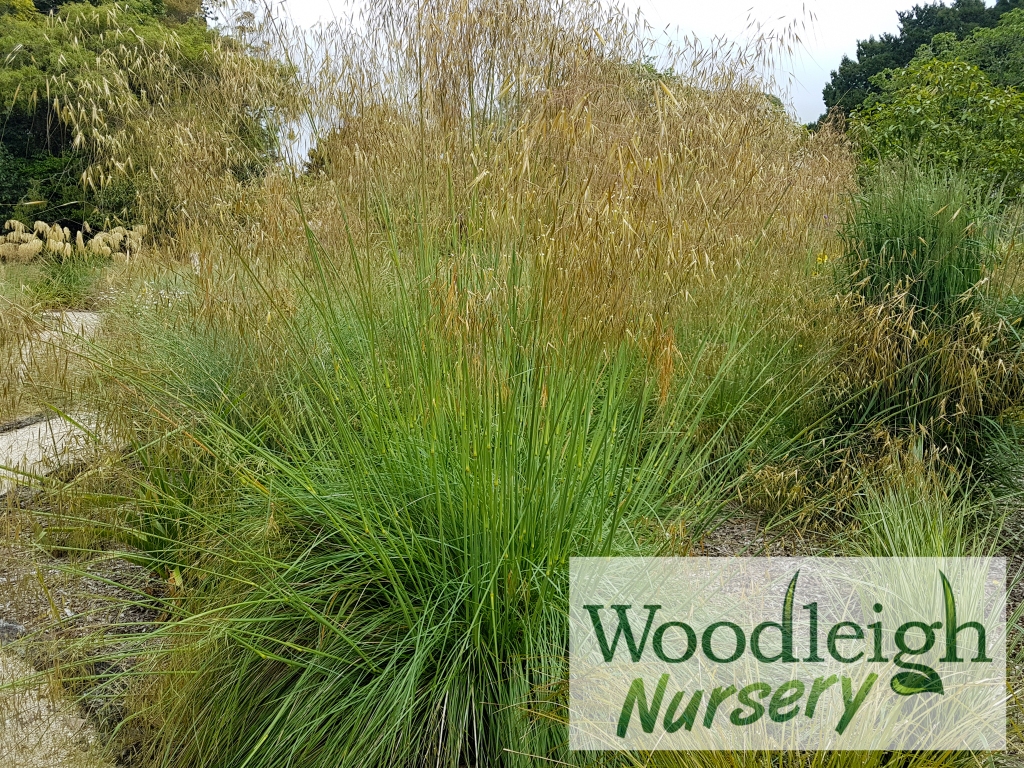
Stipa gigantea (Golden Oat Grass) AVAILABLE LATE SPRING Woodleigh Nursery
Celtica gigantea, commonly called giant feather grass, giant needle grass, or golden oats, is a species of flowering plant in the grass family Poaceae, native to the Iberian Peninsula and Morocco. [2] It is still widely referenced in the horticultural literature under its synonym Stipa gigantea. [3]
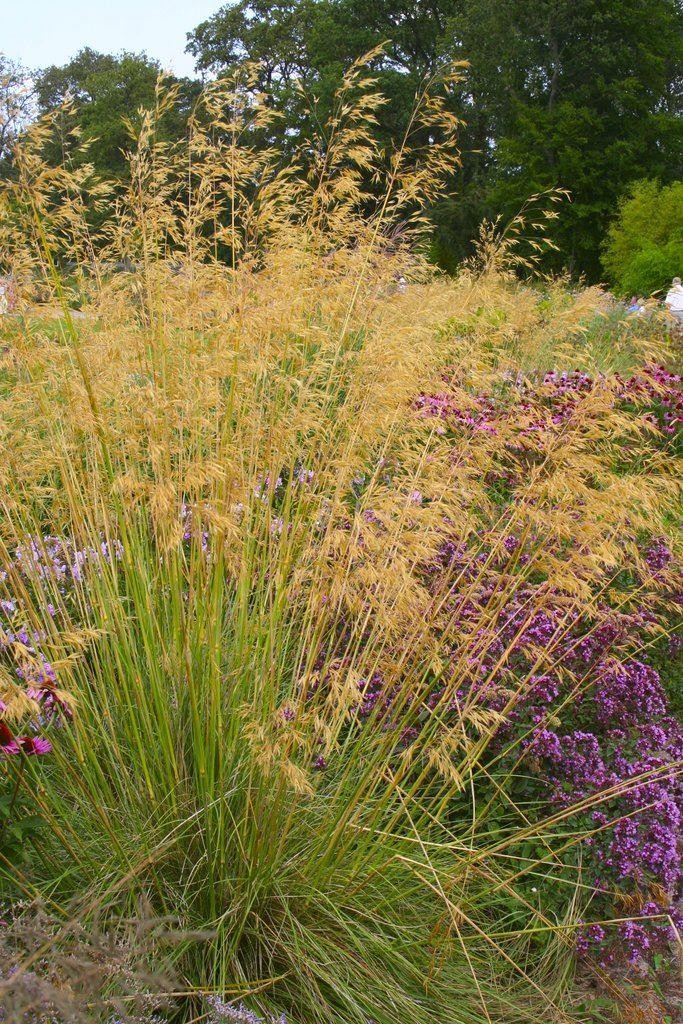
Stipa Gigantea Golden Oats Grass LARGE Ornamental Grasses Garden Plants
The flower heads can reach eight feet (2.4 metres) tall but they are see-through and allow plants further back in the bed to show through. Stipa gigantea is from southern Spain, Portugal and northern Morocco, where it can be found growing amongst scrub in sharply drained, stony soil. This makes it very tolerant of drought.
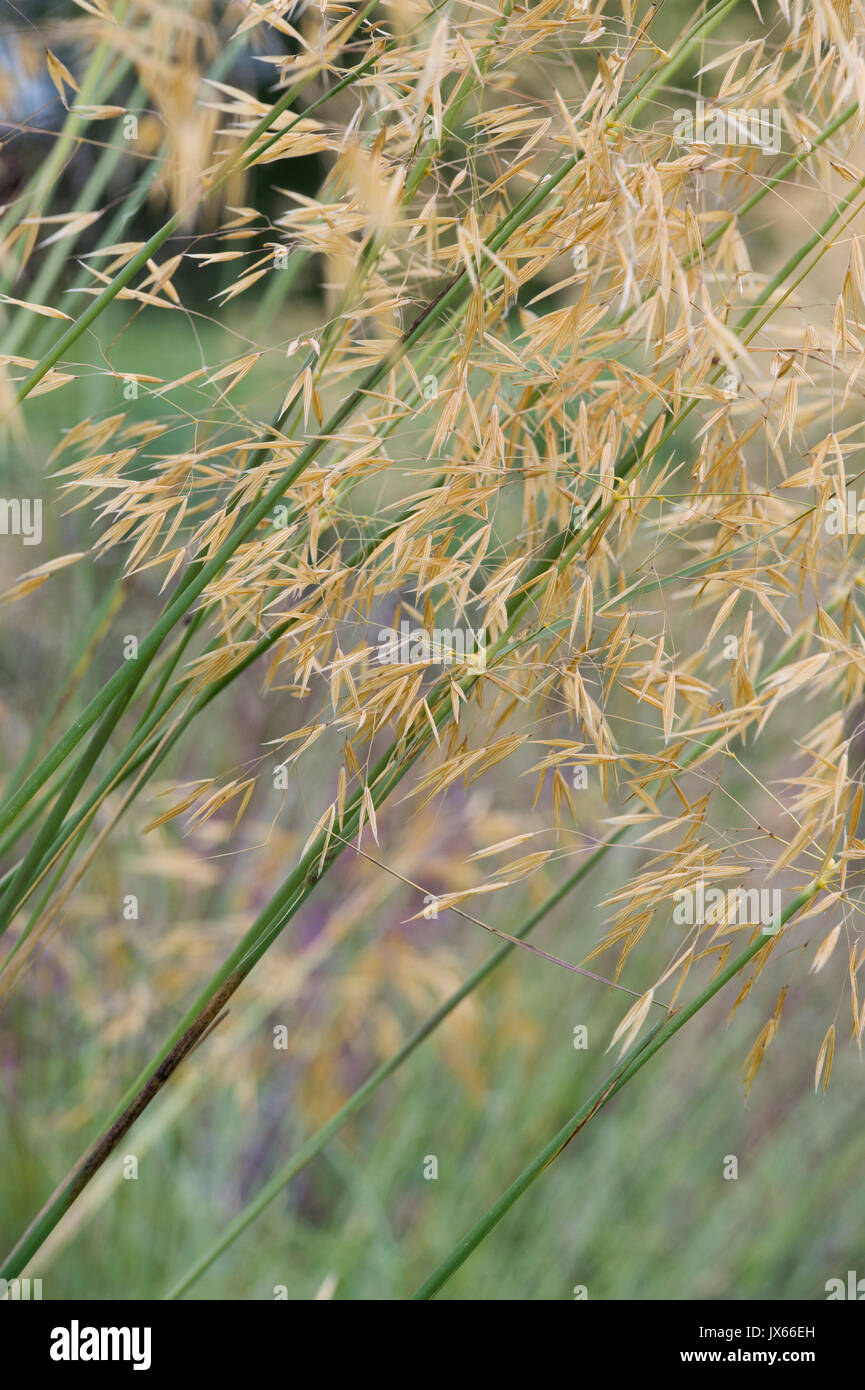
Stipa gigantea 'Gold Fontaene' . Golden oats. Giant feather grass in Stock Photo 153800825 Alamy
Giant Feather Grass, Stipa gigantea Shimmering, statuesque Stipa gigantea (or Celtica gigantea, although few use this official name) is amongst the most impressive ornamental grasses to grow.Commonly known as giant feather grass or golden oats, it's one one of the few grasses that gives year-round interest, with a basal clump of evergreen narrow leaves followed by a halo of flower spikes.
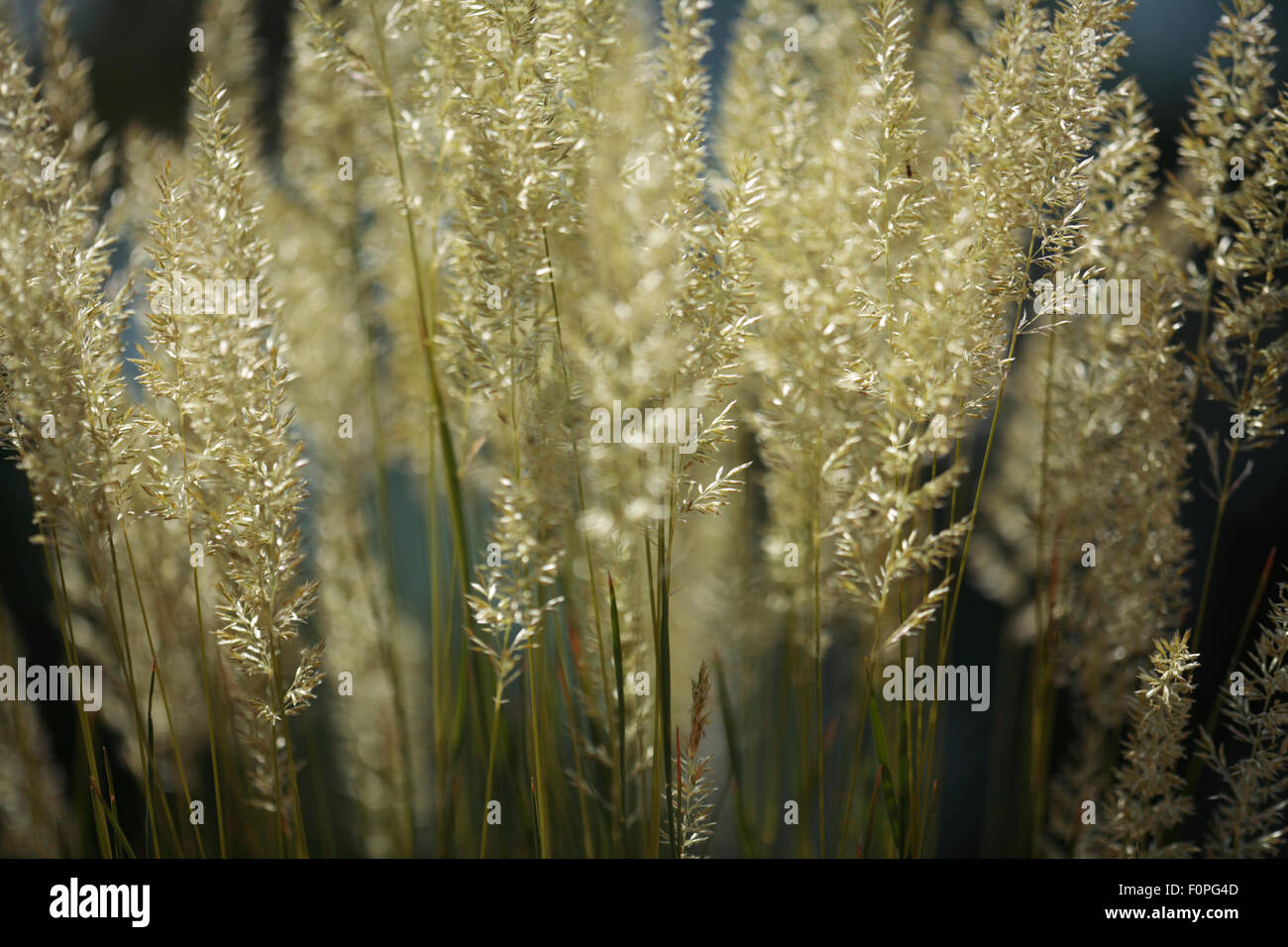
Golden oat grass (Trisetum flavescens) in a mountain pasture above Stenje region, Lake Macro
Care Grow in moderately fertile, well-drained soil in full sun. Remove the old foliage in early spring. Propagation Sow seed in a cold frame in spring; divide from mid-spring to early summer. Problems Damping off, rust, smut, brown patch, brown stripe, eye spot. Genus : Stipa. Plant Width : 3 to 6 feet.
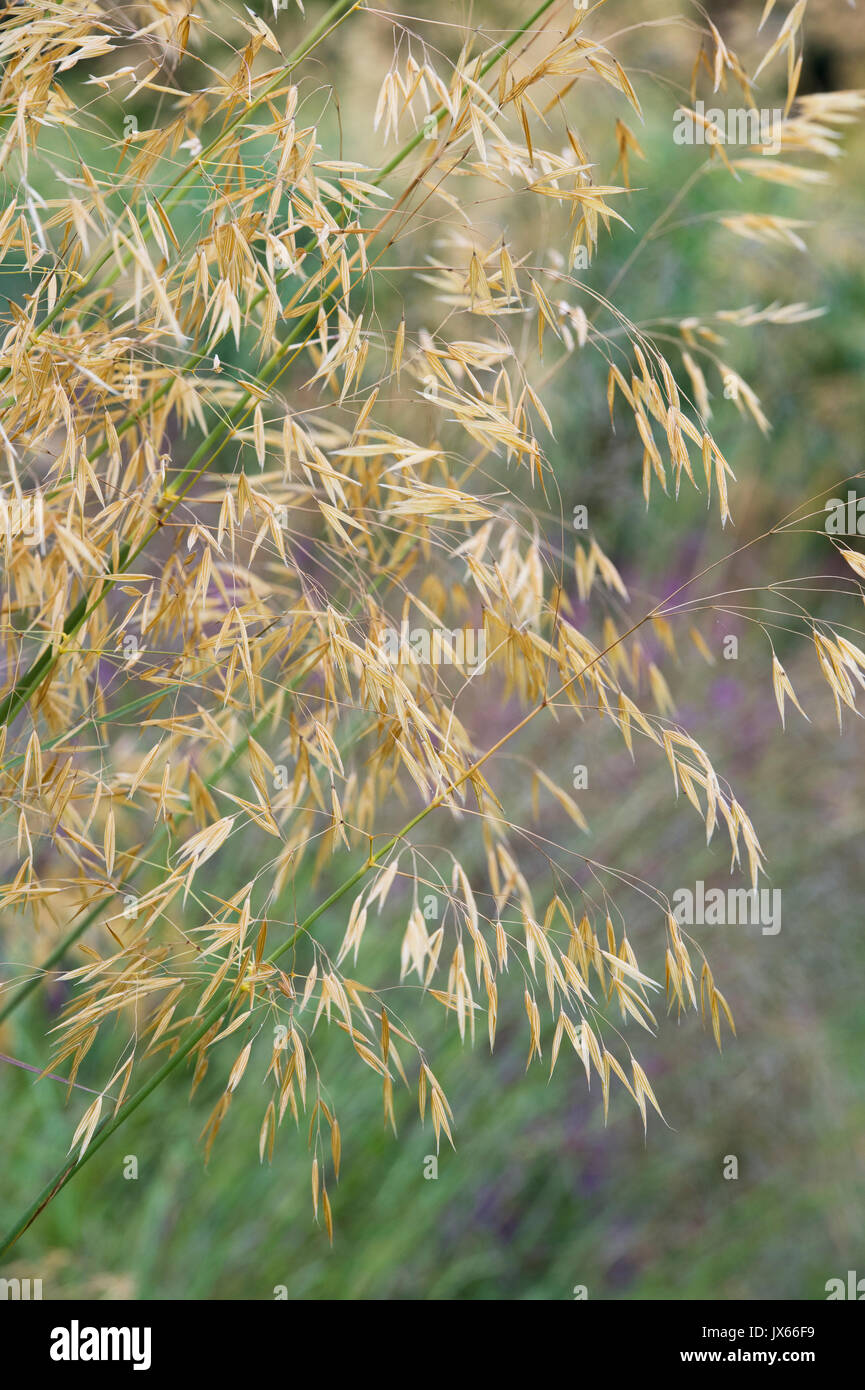
Stipa gigantea 'Gold Fontaene' . Golden oats. Giant feather grass in July UK Stock Photo Alamy
Golden Oats, Giant Feather Grass, Giant Needle Grass. Statuesque with tufts of foliage bursting with emerging seed heads in early summer, Stipa gigantea (Golden Oats) is an impressive ornamental grass. Evergreen or semi-evergreen, it forms a dense mound of slender, arching gray-green leaves, up to 18 in. tall (45 cm), from which emerge erect.
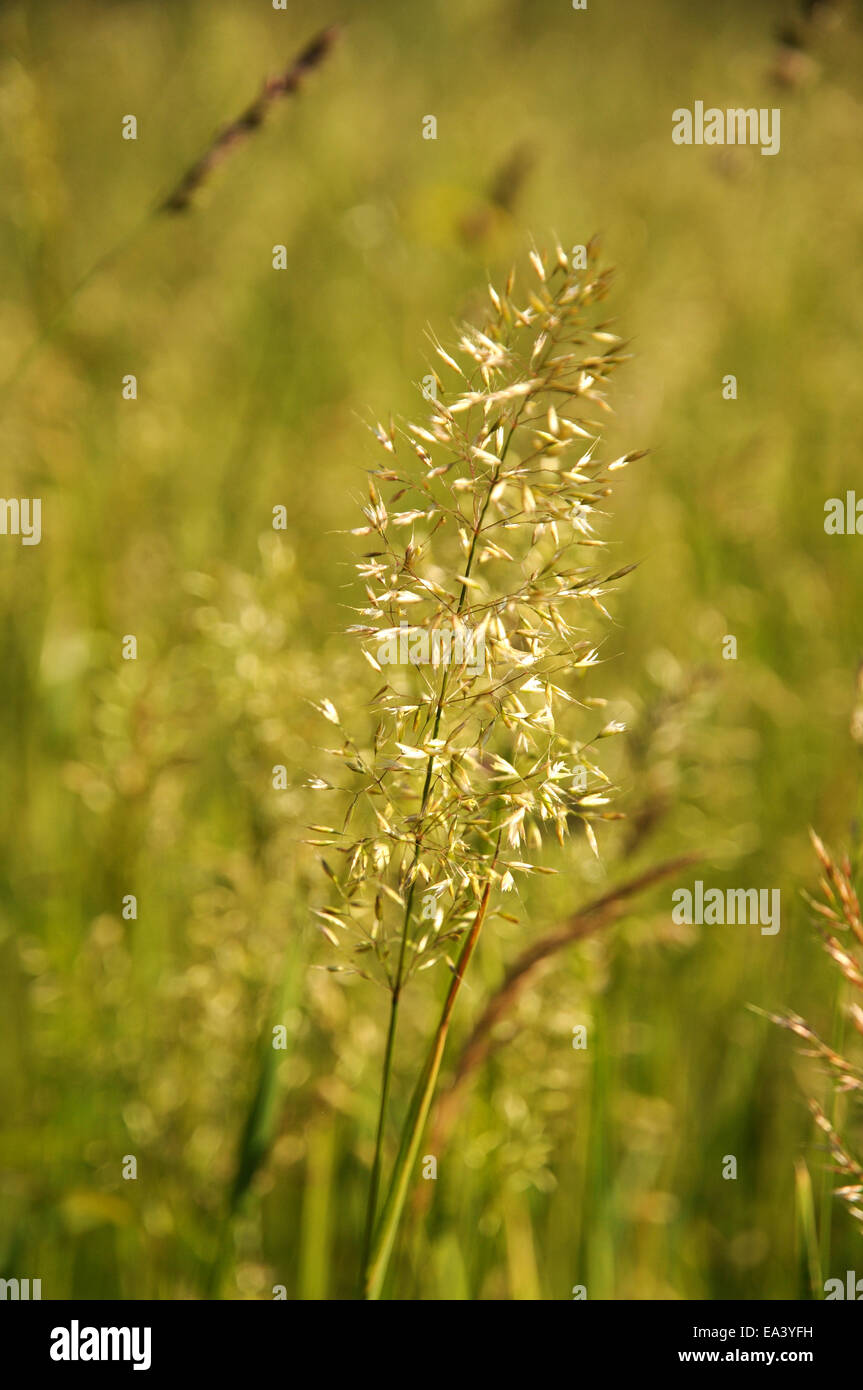
Golden oat grass Stock Photo Alamy
Stipa gigantea. Golden Oats Grass. This is the most dramatically beautiful of all grasses and has become much sought after in recent years following its representation in European gardens of note. 210cm tall wands carry huge heads of golden oat-like flowers over low tussocks of evergreen leaves. We cut this evergreen grass back to a 15cm tall.
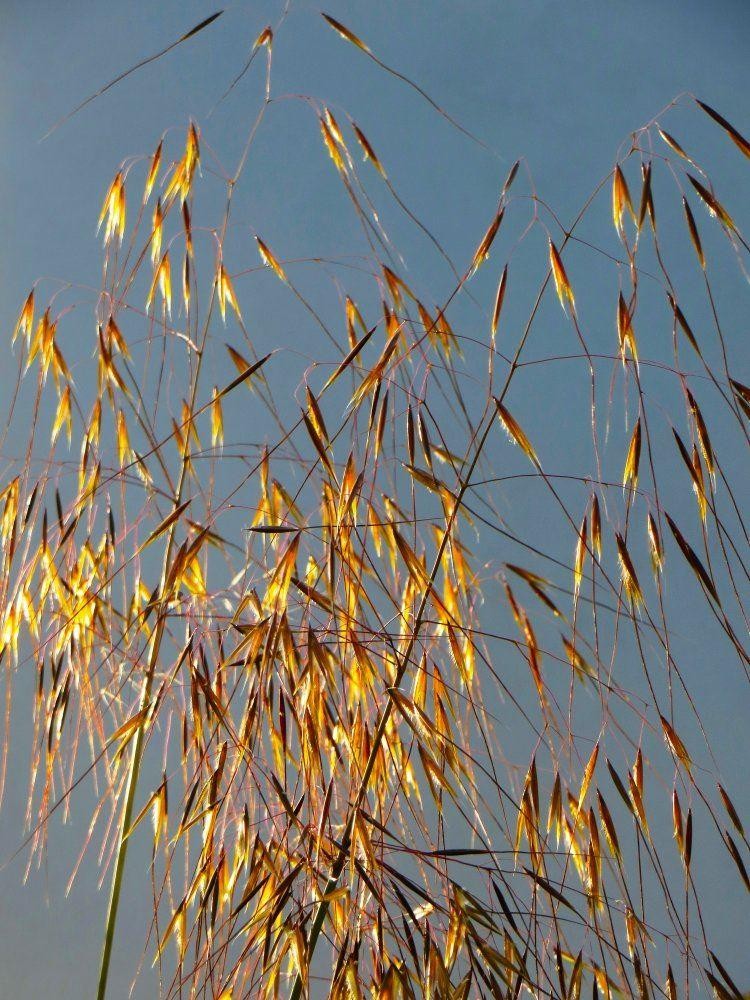
Stipa Gigantea Golden Oats Grass LARGE Ornamental Grasses Garden Plants
Stipa gigantea (Golden oats grass)- a dramatic, statement plant, not only because of its size, but also because of the large heads of oat-like flowers which shimmer in the soft morning and evening sunlight as if they are made of gold. An impressive feature in the garden reaching 1.8m high and 1.8m wide.

Stipa gigantea gol... stock photo by Carole Drake, Image 1273381
Also called giant feather grass, golden oats (Stipa gigantea) are evergreen grass with golden, airy blooms that protrude above the foliage during late spring. This striking plant grows best in fertile, well-drained soil in Sunset's Climate Zones 4 through 9 and 14 through 24. Golden oats can grow in coastal gardens as long as the soil is not.
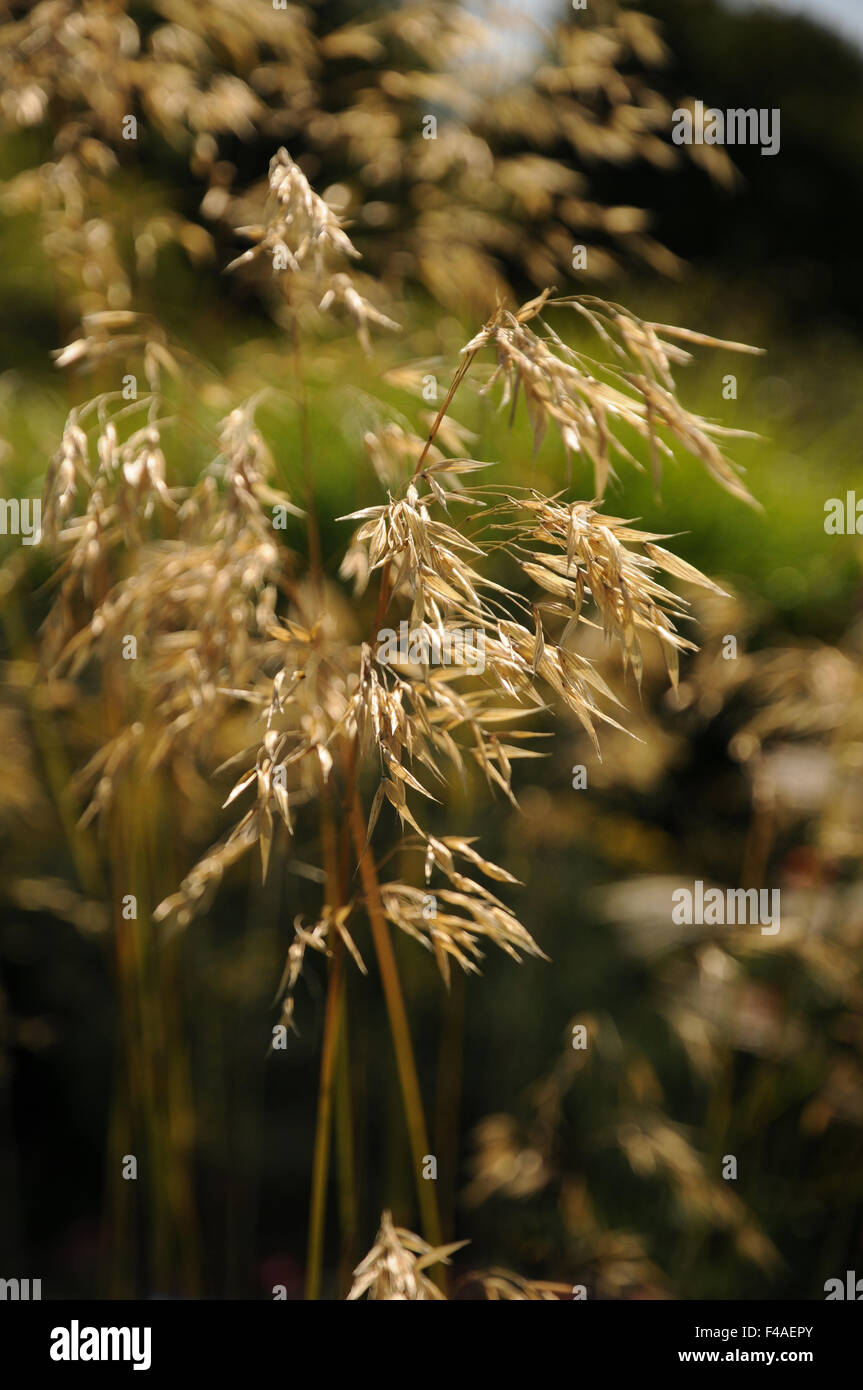
Golden oat grass Stock Photo Alamy
Stipa gigantea is a striking evergreen grass, forming a spiky clump of arching deep green foliage from which a huge sheaf of long-stemmed, oat-like flower-heads erupts in mid-summer. When mature, these splay apart to make a wide fountain shape that almost hides the plant. The seedheads dry out naturally on the plant and persist into early winter, where they make a good architectural feature.

Golden oats grass Stipa gigantea backlit by evening sun in UK garden Stock Photo Alamy
golden oats. S. gigantea is a robust tufted evergreen grass to 2m, with arching linear green leaves and large panicles of oat-like, long-awned purplish flowers which ripen to gold. Join the RHS today and save 25%. Join now.

Stipa gigantea Golden Oats Grass Mail Order Trees
This video is about how to deal with Stipa gigantea, golden oat grass, in spring, all about cutting back or pruning it. More information below I invi.
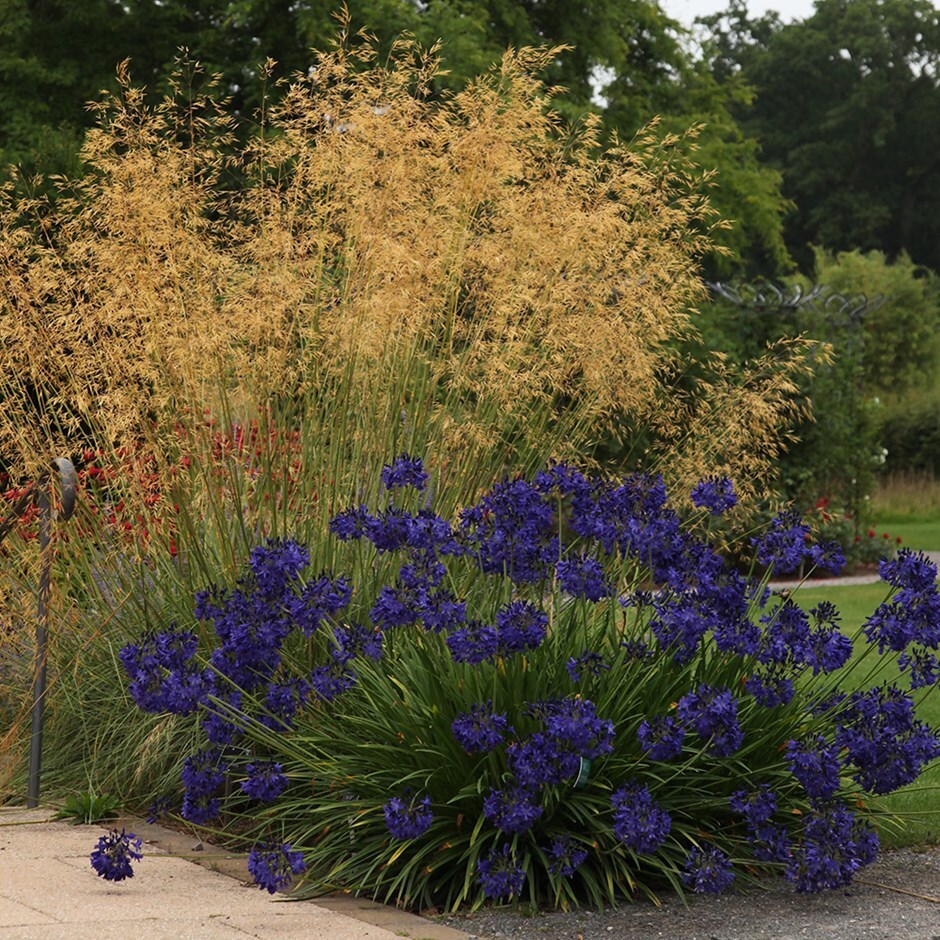
Buy golden oats Stipa gigantea £7.99 Delivery by Crocus
Golden Oat Grass love being close to bright, sunny windows 😎. Place it less than 1ft from a south-facing window to maximize the potential for growth.. Golden Oat Grass does not tolerate low-light 🚫. Select your region to see how the current weather in your area affects the placement of Golden Oat Grass in your home 🏡.
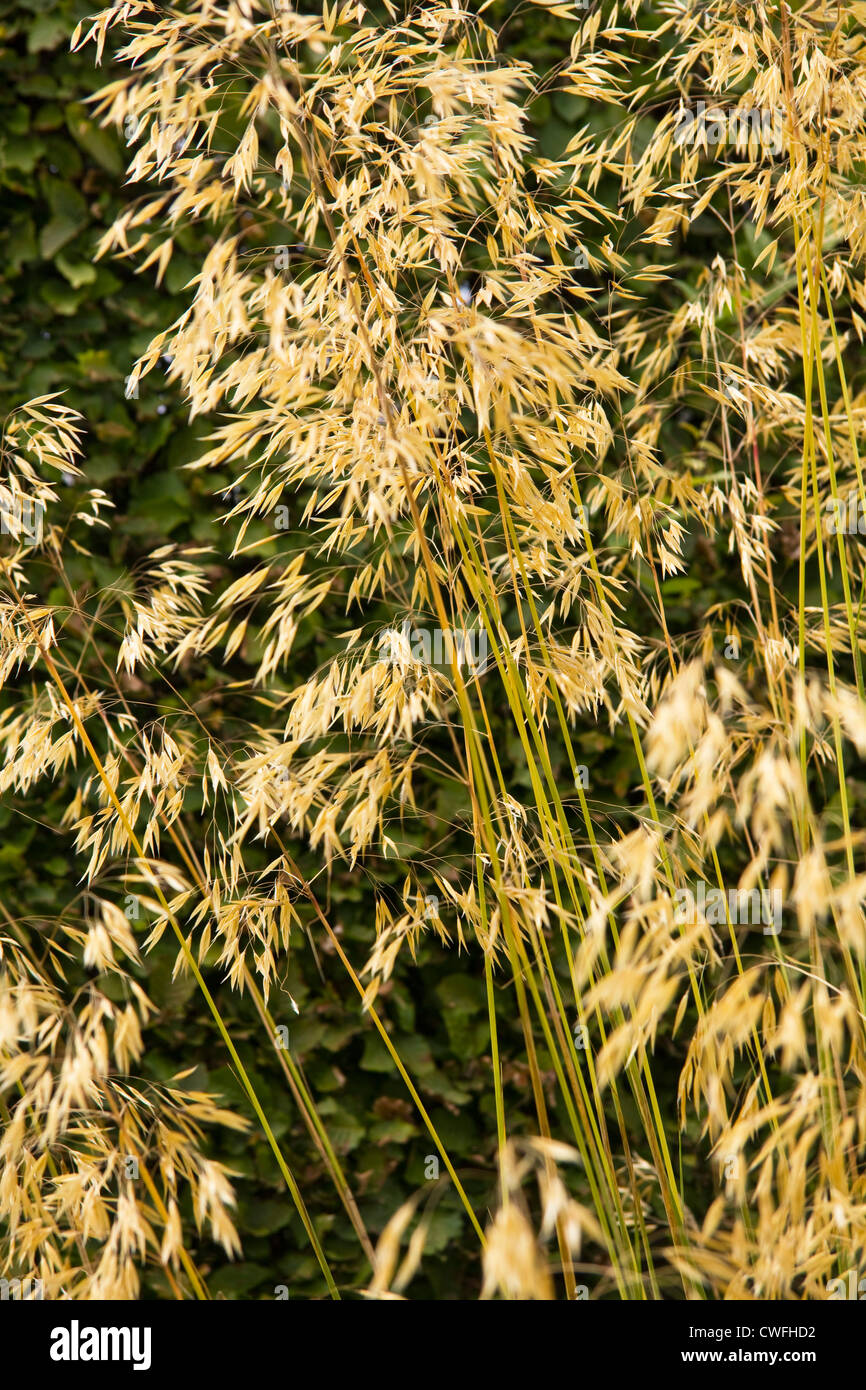
Golden oats perennial grass, Kent, England Stock Photo Alamy
Stipa gigantea - The Giant Feather Grass or Golden Oat Grass - is normally an evergreen, but sometimes in severe winters - or some planting situations - merely semi evergreen. Whichever, it is a perennial so will grow back each year - quickly! It prefers a dry soil - but will tolerate damp but not waterlogged.

Golden oat grass Stock Photo Alamy
S. gigantea is a vigorous, clump-forming, evergreen to semi-evergreen, perennial grass with arching, linear, rolled, grey-green leaves and, in summer, erect stems bearing oat-like panicles of purple-flushed, green flower spikelets turning golden-yellow with age.

Celtica Gigantea or Giant Feather Grass or Golden Oats in Zurich in Switzerland Stock Photo
Golden oats (Stipa gigantea) Care Guide. Stipa gigantea has leaf blades that are narrow and gray-green, creating a bunchgrass foliage mass 61 to 91 cm in diameter. It is evergreen to semi-evergreen, depending on the climate. The plant has prominent flower spikes emerging silver-laveneder in the late spring, aging to a radiant golden over the summer, and persisting in tan into winter.
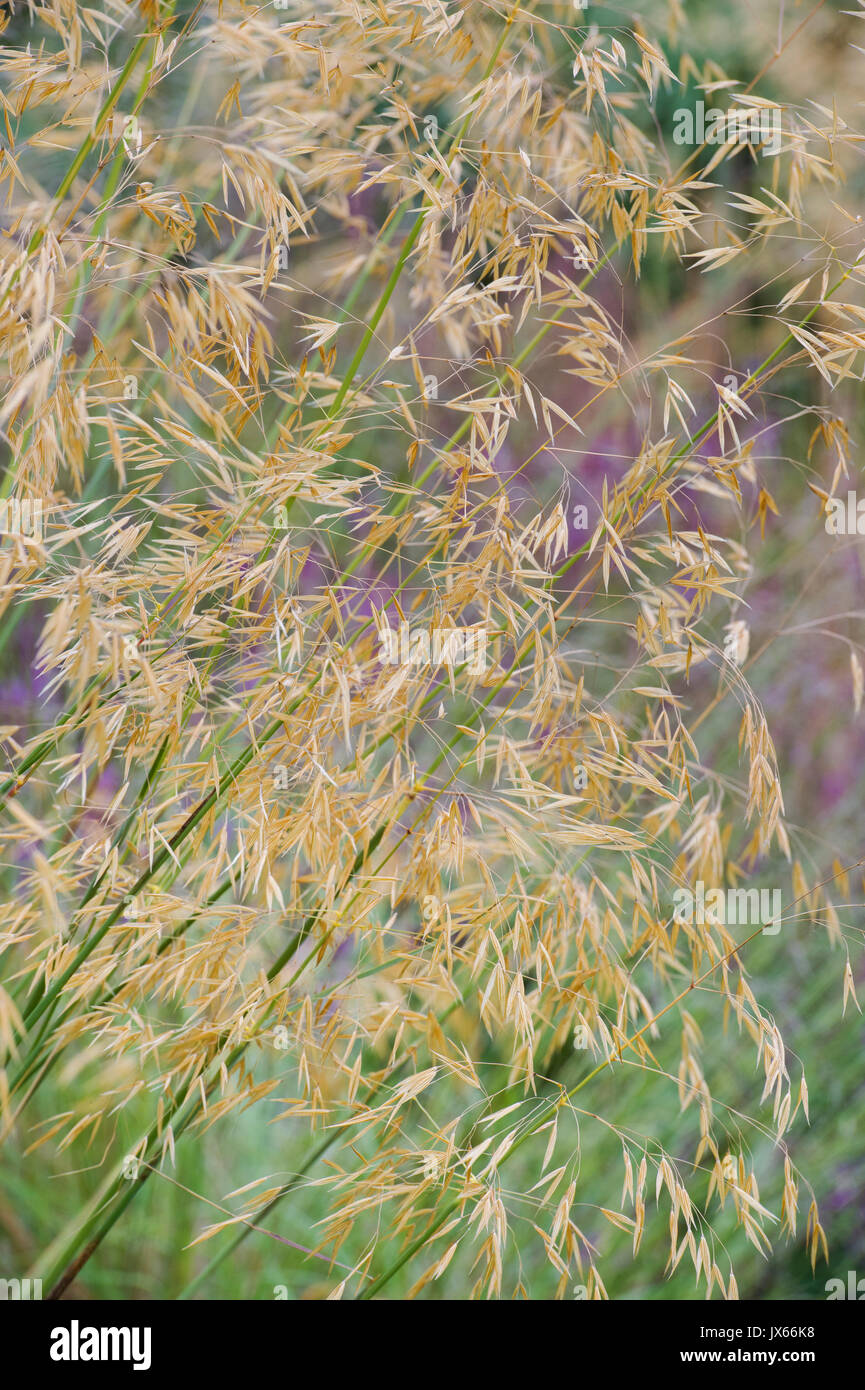
Golden oats stipa gigantea hires stock photography and images Alamy
Golden oat grass (Trisetum flavescens) Care Guide. Golden oat grass (Trisetum flavescens) is an attractive wild grass that is grown ornamentally in meadows and naturalized plantings. It produces hay that makes good fodder for livestock but it isn't farmed commercially because of its relatively low yield. However, this quick-spreading grass is classed as invasive in eight countries.